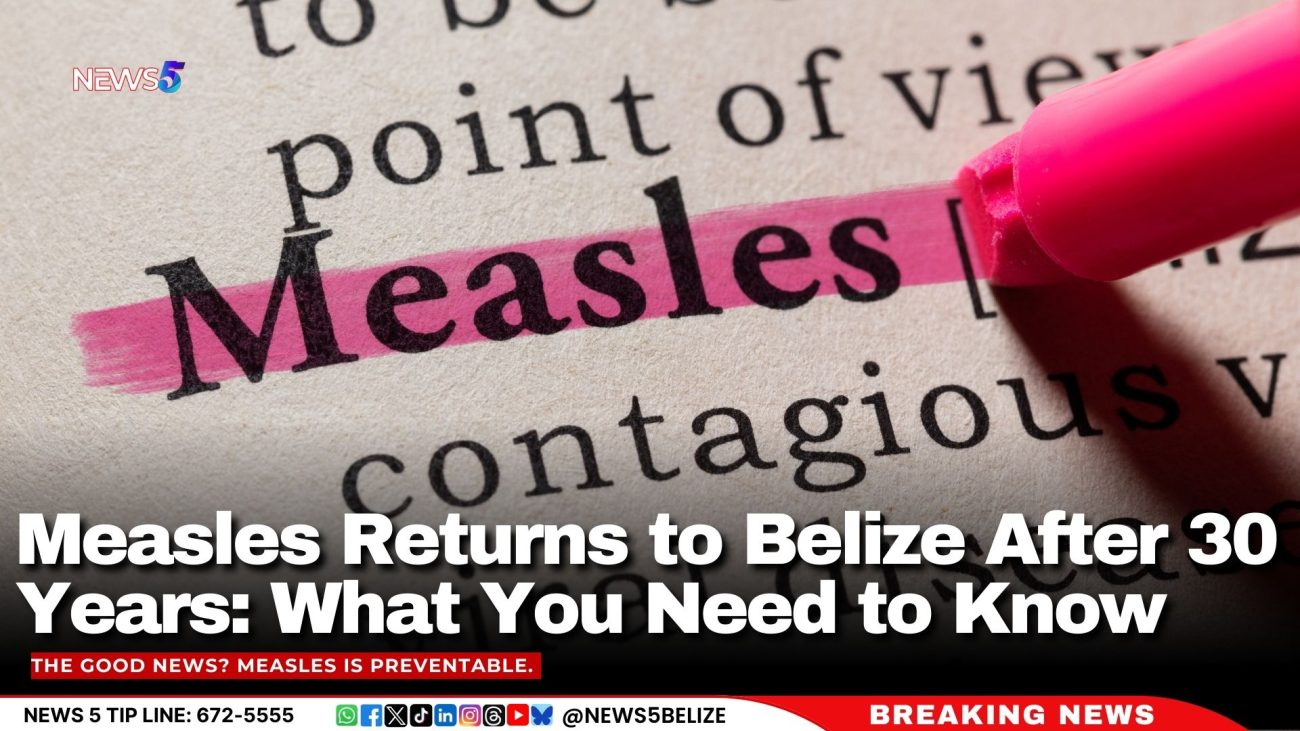Measles Returns to Belize After 30 Years: What You Need to Know
After more than three decades without a single case, measles has reappeared in Belize. Health officials have confirmed two positive cases—one in Corozal and another in Cayo.
The Ministry of Health & Wellness revealed that the individuals recently returned from a trip to Mexico. Shortly after their arrival, they began showing symptoms—fever and a distinctive rash. Samples confirmed what health authorities had hoped to avoid: the first cases of measles since 1991.
While measles may sound like a disease of the past, it remains a real threat—especially to those who are unvaccinated. In 2023 alone, an estimated 10.3 million measles cases were reported globally. Outbreaks have affected every region of the world, and now, Belize is part of that alarming trend.
Measles spreads through the air when an infected person coughs or sneezes. It often starts with flu-like symptoms: fever, runny nose, red eyes, and a cough. A rash typically follows, starting at the hairline and spreading downward across the body. In severe cases, measles can lead to pneumonia, brain swelling, or even death.
The good news? Measles is preventable.
The MMR vaccine—protecting against measles, mumps, and rubella—is safe, effective, and freely available at public health facilities. Children in Belize should receive their first dose at 12 months and a second at 18 months. But adults who never got vaccinated—or aren’t sure—can still get protected.
The ministry has increased surveillance for fever and rash symptoms and is urging everyone to check their vaccination status. If you or a family member show any sign of measles, don’t wait—visit the nearest health centre. If you’re unsure about your vaccination record, now is the time to ask questions and get the facts.
For more information, contact your local health clinic or call 0-800-MOH-CARE.







Facebook Comments